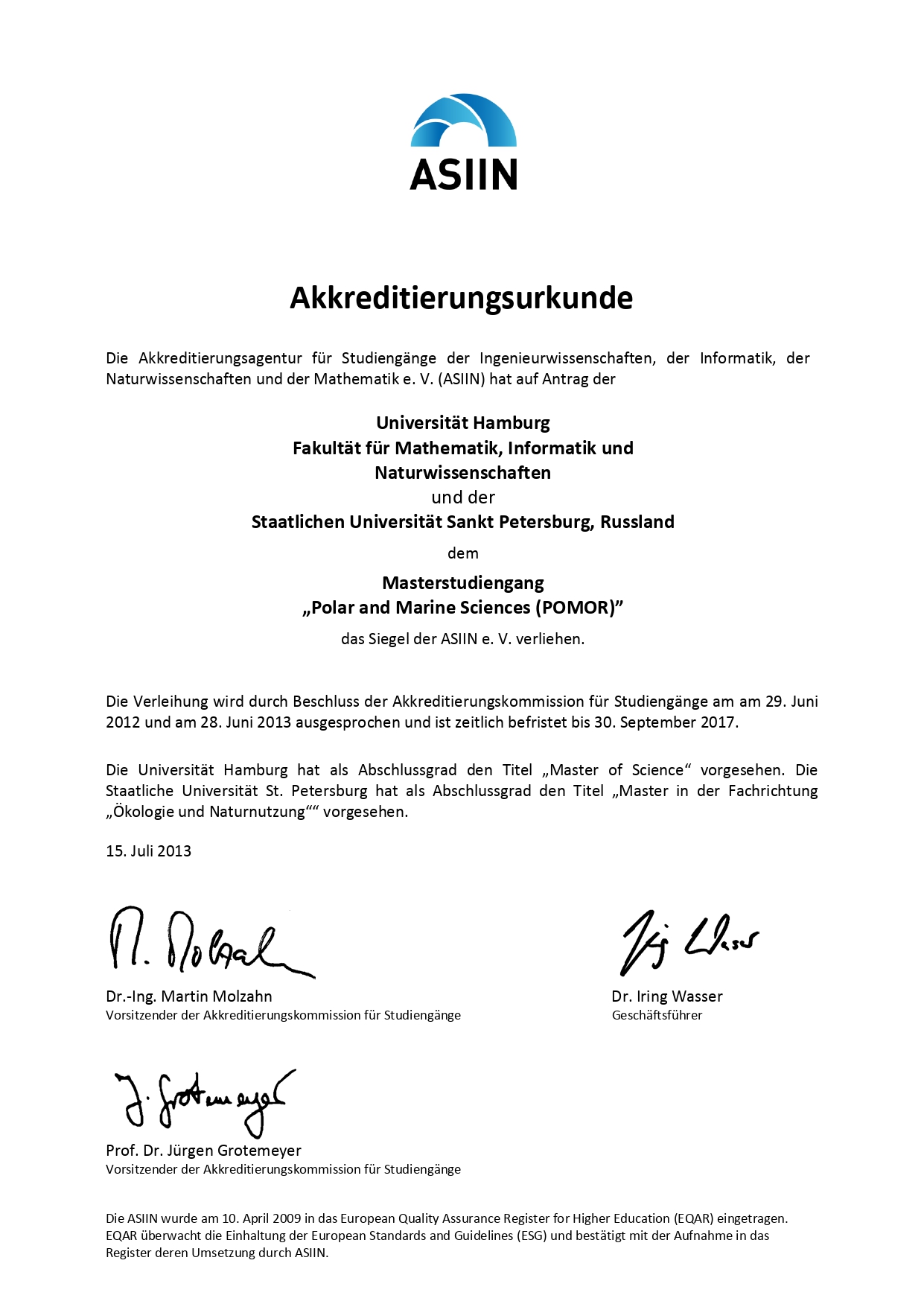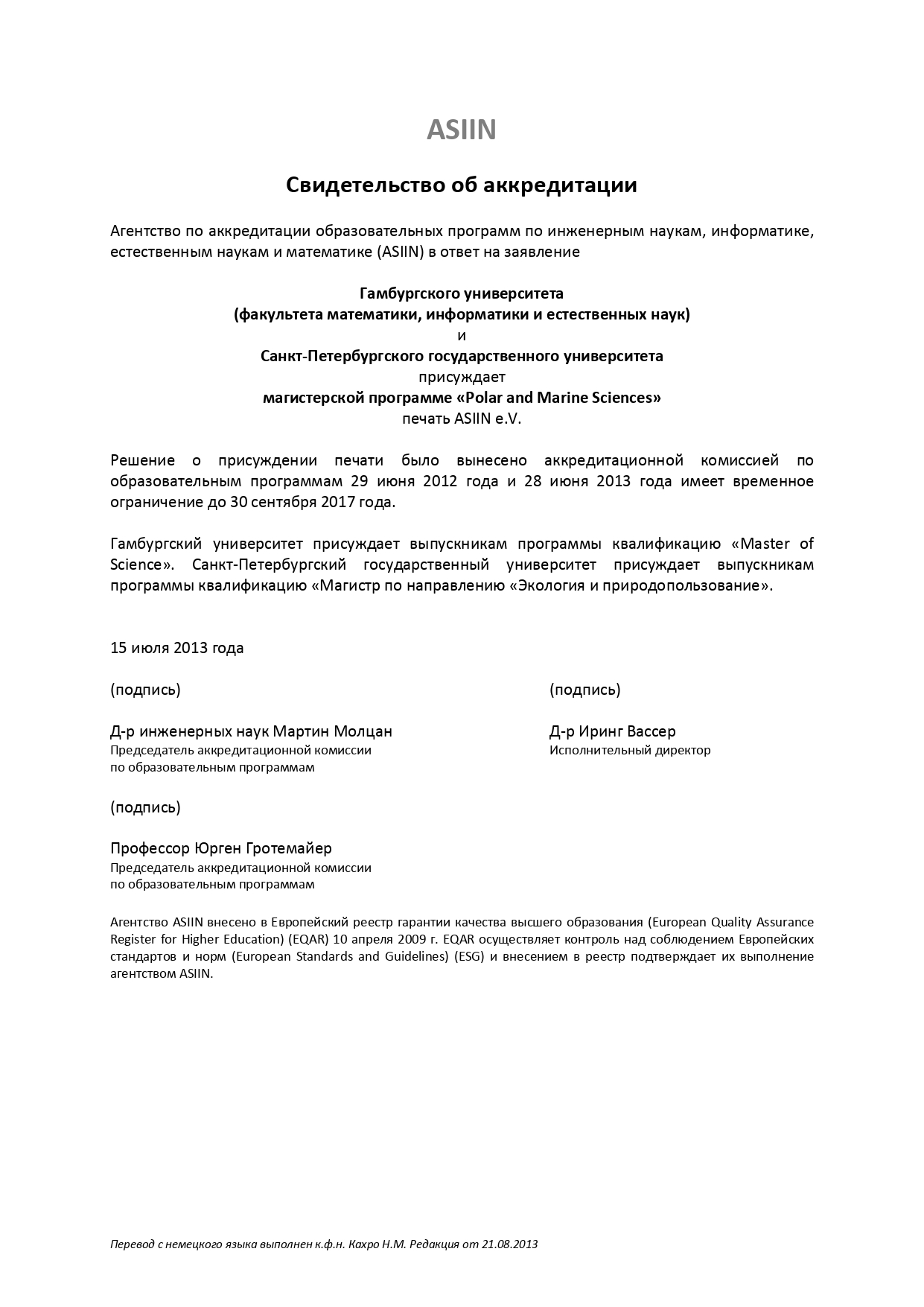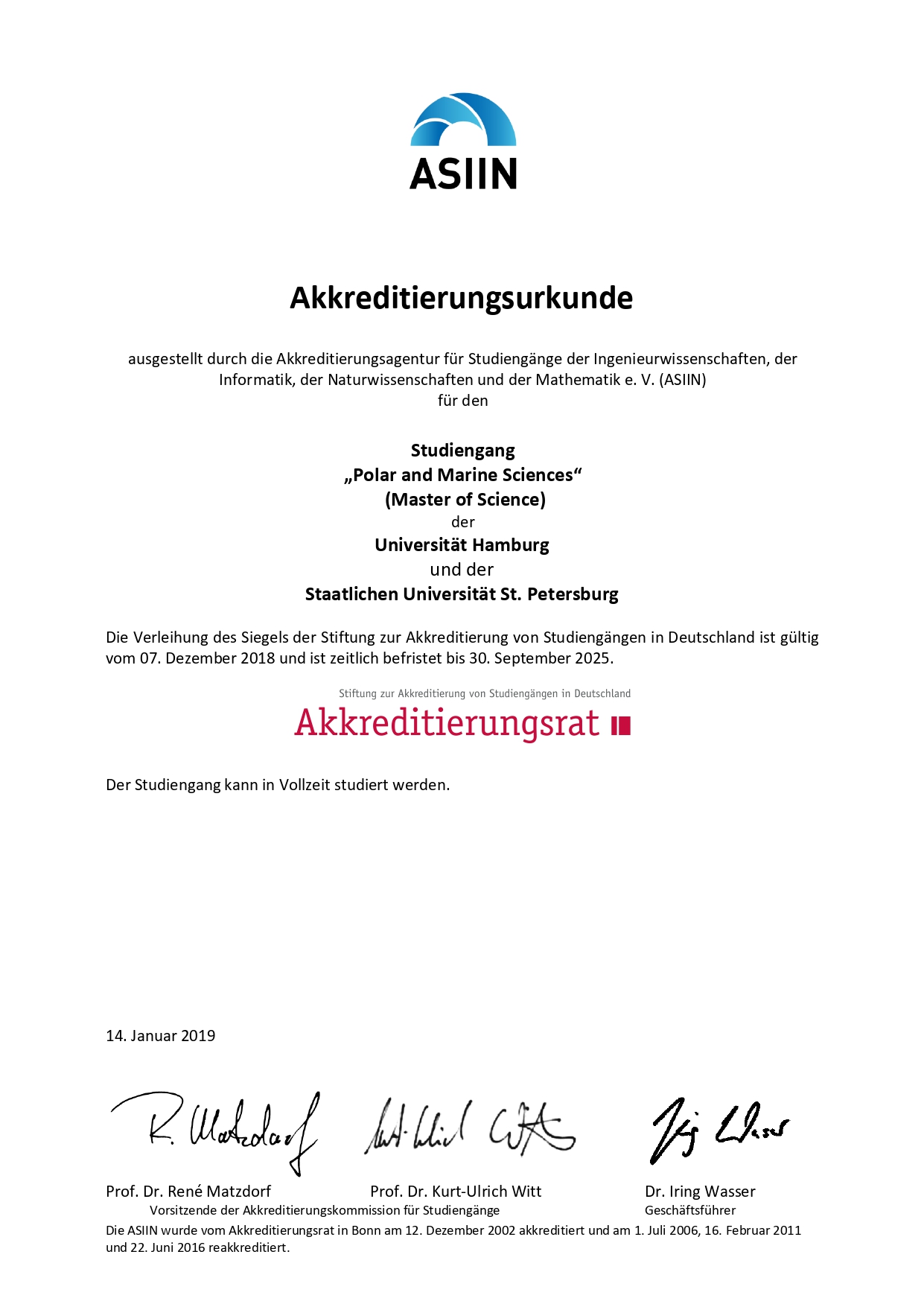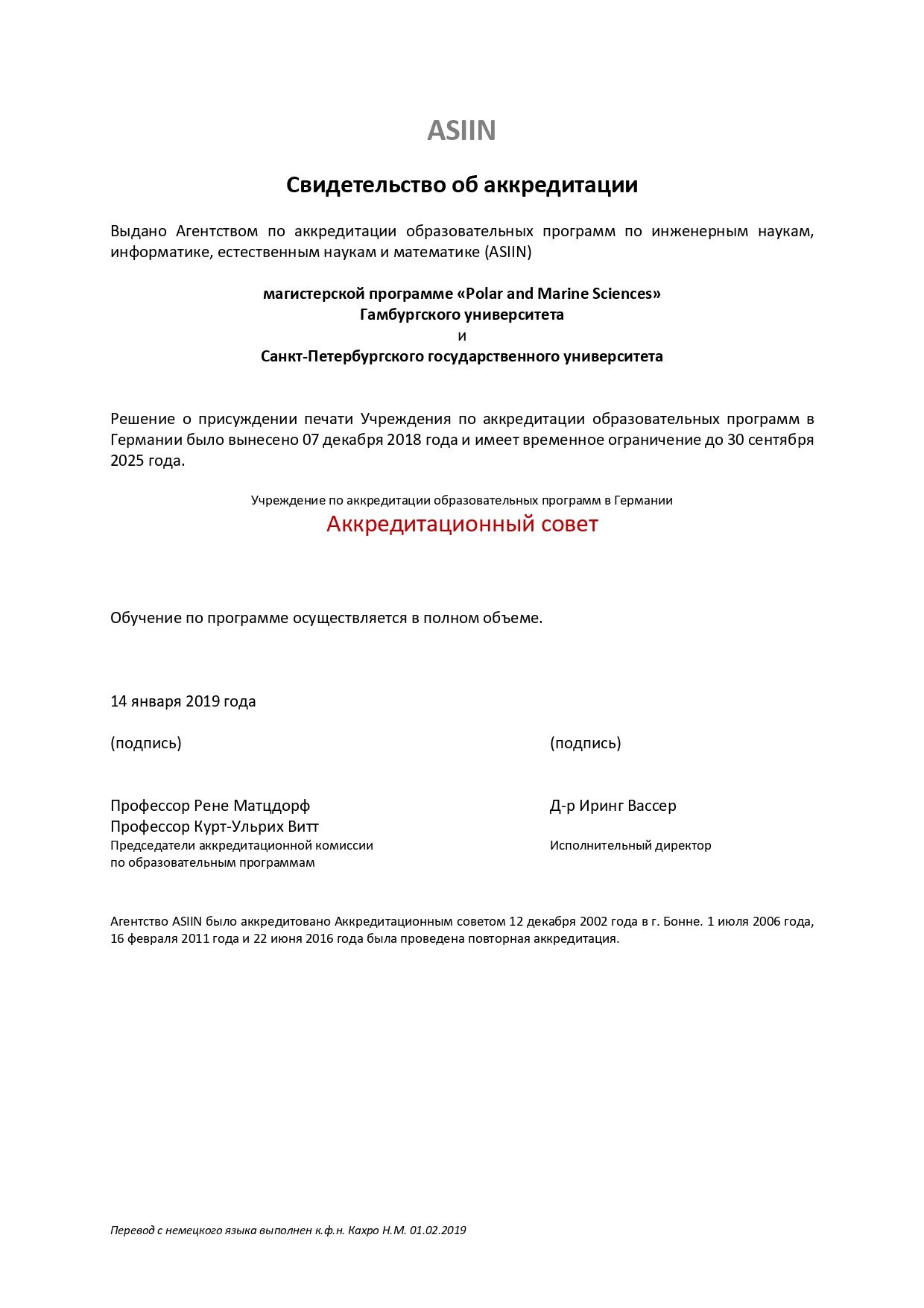The international Accreditation agency for degree programs in engineering, computer science, the natural sciences, mathematics and teaching qualification ASIIN e.V. accredited the Dual Degree Master Program for Polar and Marine Sciences POMOR (Hamburg University & Saint Petersburg State University) in 2013 and again in 2018.
The accreditation was awarded till September 30, 2025 and is to be prolonged.
An independent expert group revised the master program according to the following criteria:
- Concept of the contents
- Structure, methods and their realization
- Examinations: Systematics, concept and organization
- Network and facilities
- Quality management
- Documentation and transparency
- Diversity & Equal opportunities
- Prospects of the students
The ASIIN e.V. is one of the leading accreditation agencies in Germany. It is an associated member of Washington Accord and member of the ENAEE.
Awarding of the quality seal of this agency to the Master Program POMOR is a distinction for the activities of all participating universities and research institutes.
The international accreditation consolidates the success of the master program and its recognition in the professional and scientific community.
|
Accreditation certificate 2013 |
Translation into Russian |
Accreditation certificate 2019 |
Translation into Russian |
Why international accreditation is important for students?
Being awarded a degree of an accredited program means:
- The quality of the education received meets the international standards
- Your degree is recognized by the professional and scientific community
- Your employment opportunities are increased and enhanced
Why international accreditation is important for the program itself?
Being accredited by an international accreditation agency means:
- To receive an international recognition of quality
- To promote "best practices" in education
- To be based on "learning outcomes," rather than "teaching inputs"
- To involve teaching staff in self-assessment and continuous quality improvement
- Acceptability of transfer credits

 English (United Kingdom)
English (United Kingdom)  Russian (Russia)
Russian (Russia) 


